Stocks fell sharply yesterday, with the S&P 500 down more than 2% and the Nasdaq 100 dropping 3.15%. These declines aren’t entirely unexpected, and some of the drop is due to the end-of-day surge we saw on Friday, driven by an end-of-month buy imbalance.
By 10 a.m., the S&P 500 had erased all those Friday gains after gapping lower at the open. The drop created a significant gap from a bullish perspective, and its structure suggests it could quickly be filled.
If you’re bearish on the market, being cautious is essential given this risk, precisely because of the straight-line drop at yesterday’s open following that straight-line rally from Friday’s close.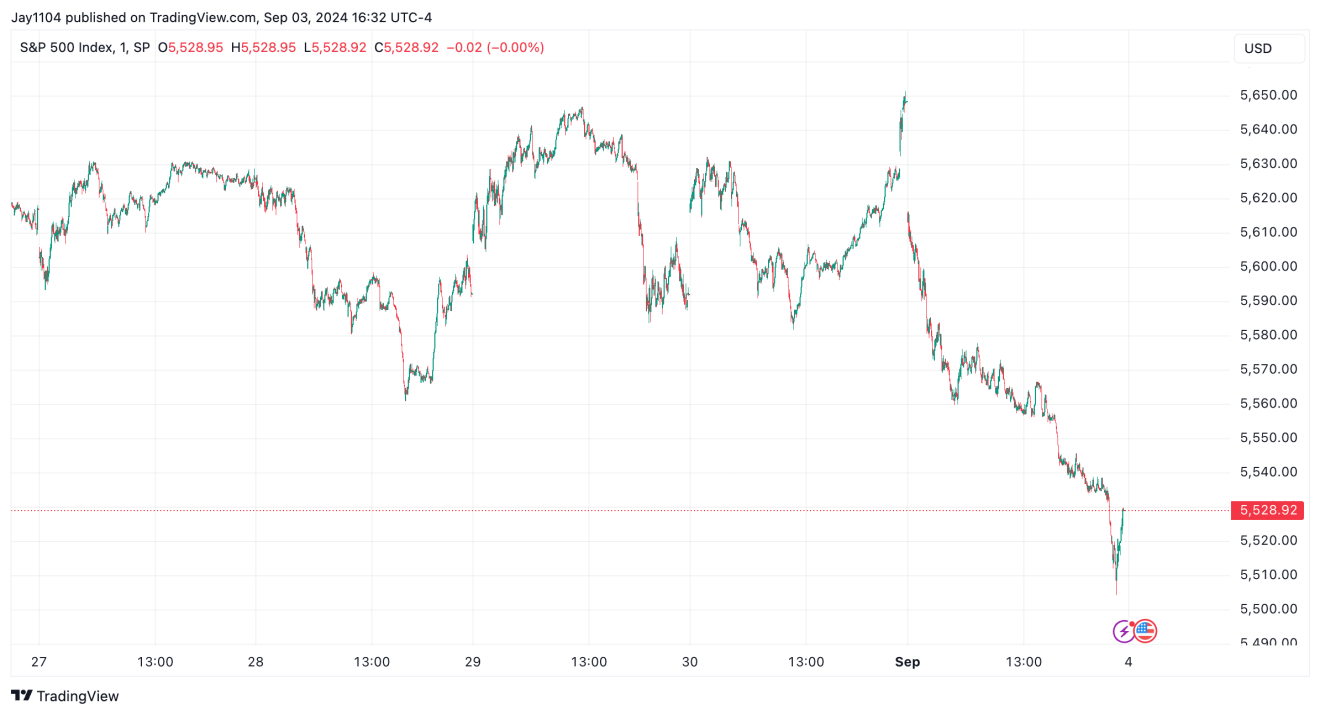
With that in mind, here are 7 indicators to monitor as markets brace for a volatile day after facing sharp declines yesterday.
1. S&P 500's Gap Fill at 5,450
From a bearish standpoint, if the index can gap below 5,500 yesterday, it could fill the gap at 5,450, which opens the possibility for various outcomes to play out.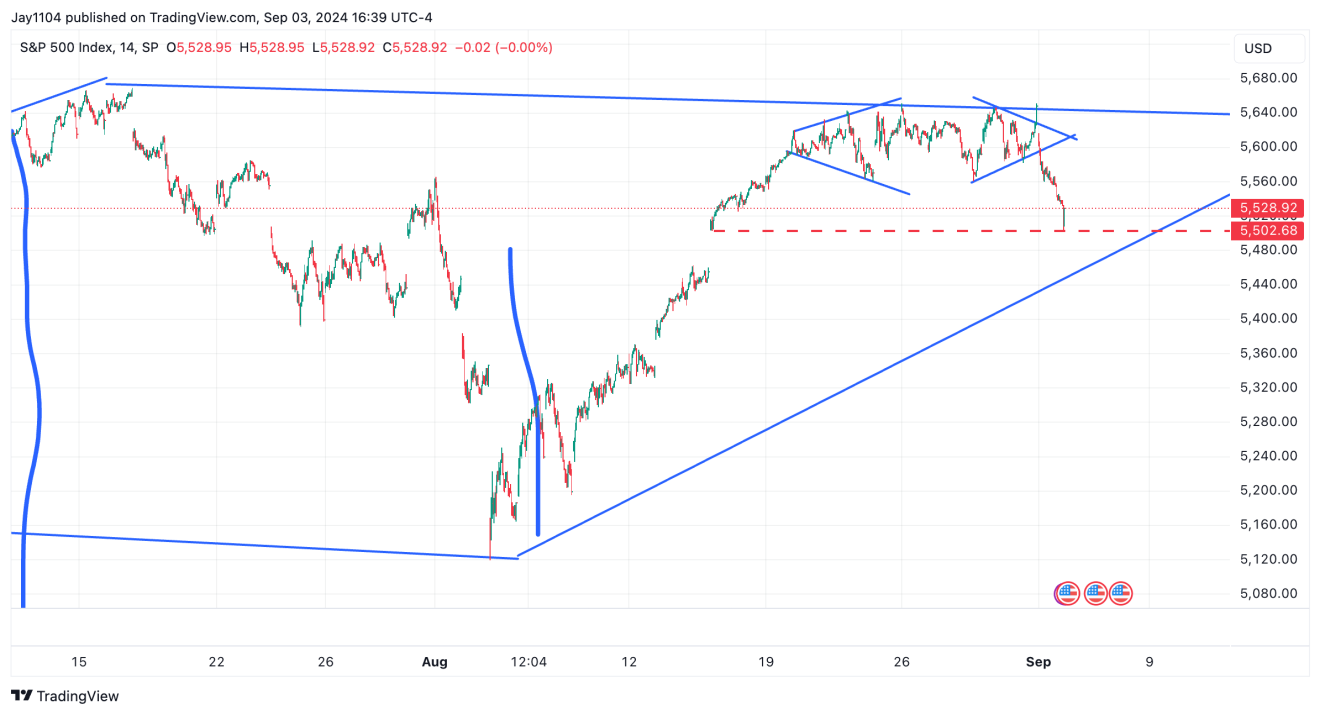
2. Nasdaq 100 Breaks Several Support Levels
Structurally, the Nasdaq 100 had a similar gap opening, presenting the same opportunity for a gap fill.
However, the Nasdaq has already broken through several support levels, making it look much weaker at this point compared to the S&P 500.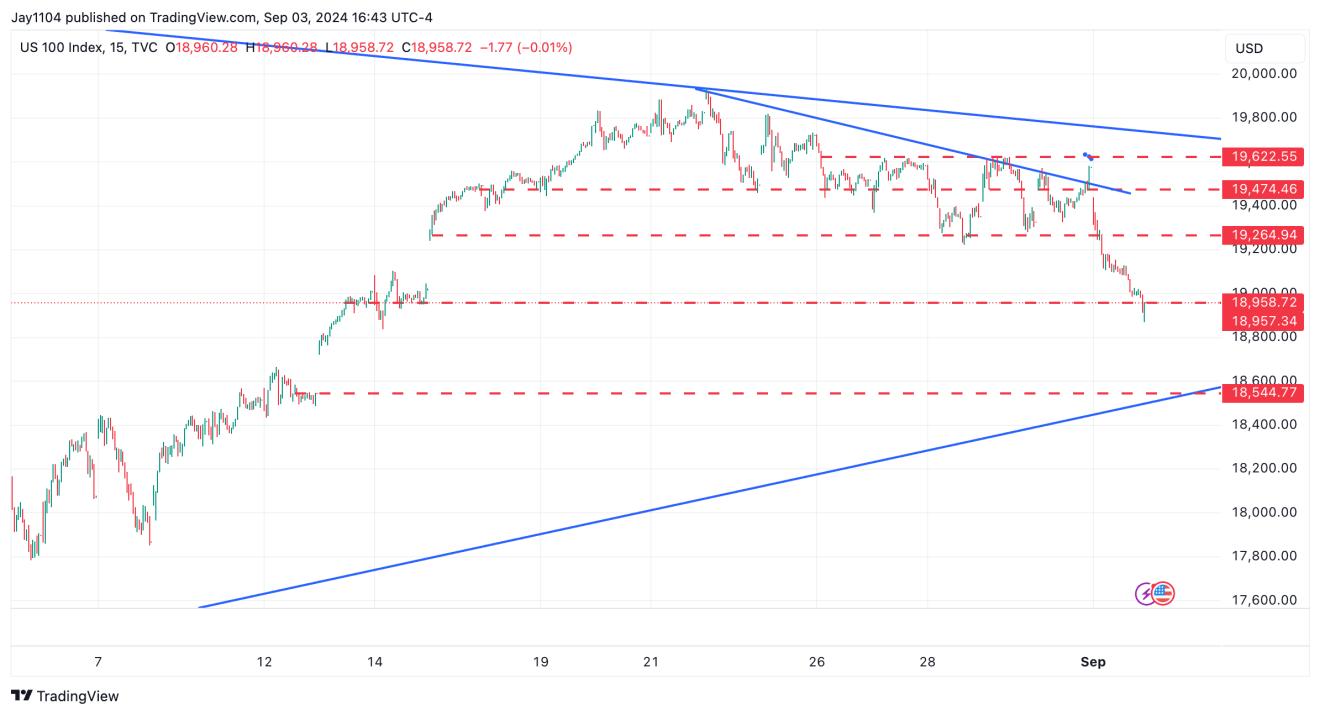
3. Nvidia's Diamond Reversal Pattern
Nvidia (NASDAQ:NVDA) contributed significantly to yesterday’s decline. Nvidia appears to be completing a diamond reversal pattern, a typically very bearish formation, but a return to that August 5 low can’t be ruled out.
We’ll need to see how this pattern plays out. Additionally, there are headlines indicating that the Department of Justice has subpoenaed the company as part of an antitrust probe.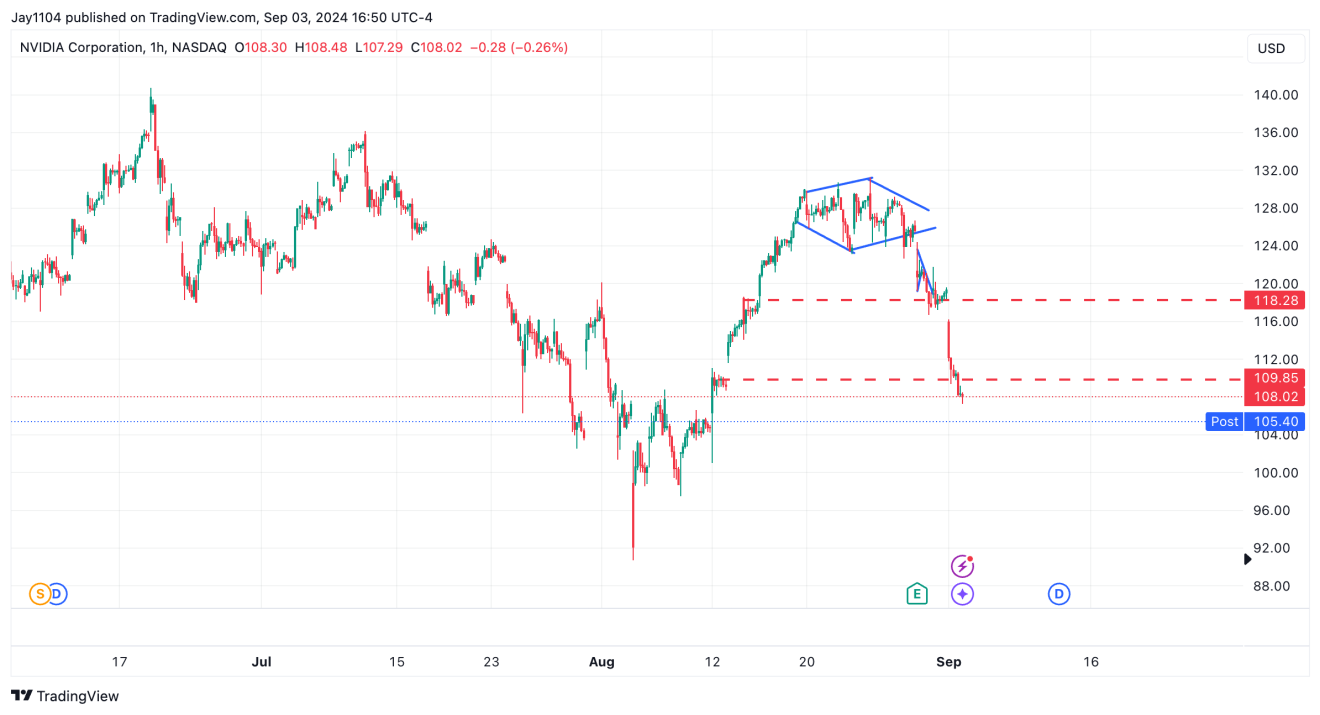
4. Broadcom's Drop Ahead of Earnings
Broadcom (NASDAQ:AVGO) is set to report results next week, and it appears to have broken a support level, which is not a positive sign for a company heading into earnings. The other concern is that the next level of support isn’t until around $130.
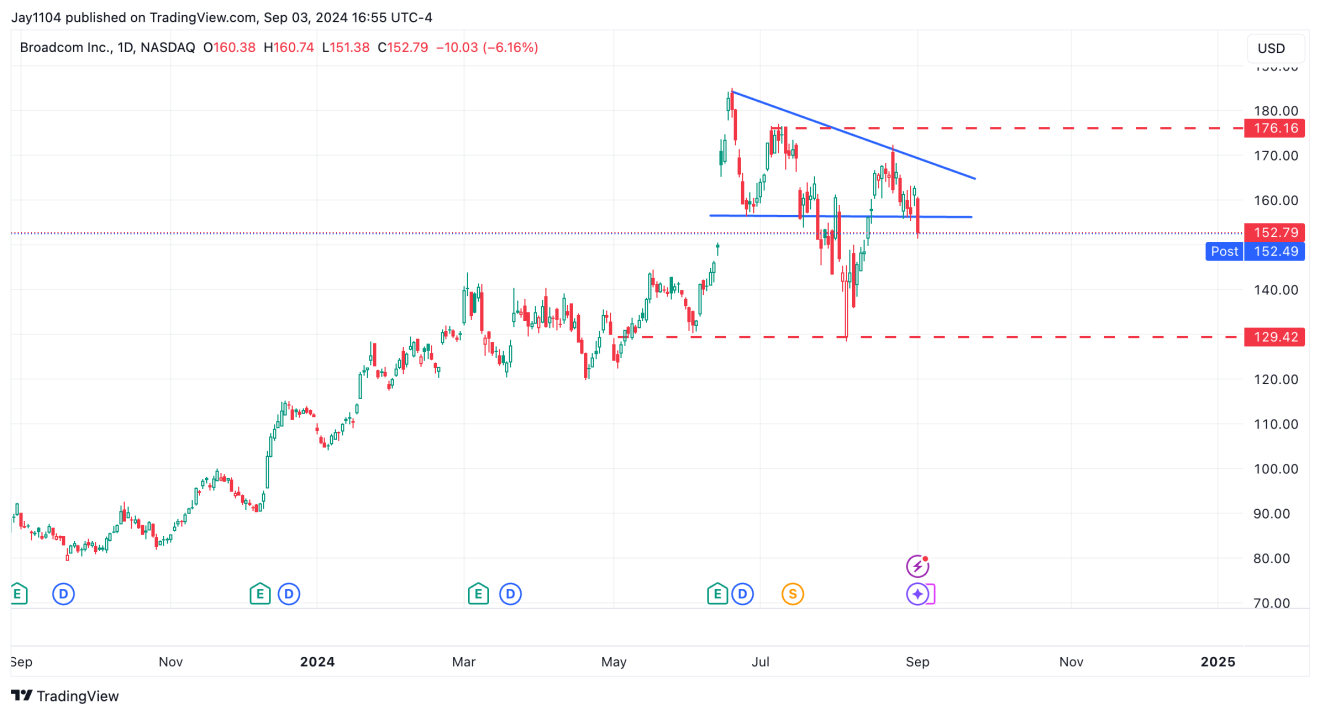
5. High Yield Bonds
Meanwhile, the CDX high yield spread index was higher yesterday, which helped to bring the small-cap IWM ETF lower by 3%.
Remember, the IWM has a very strong correlation with the credit spread, so it is entirely possible for rates to fall and the IWM to fall, too, because spreads are widening.
Perhaps the easiest thing to do is just watch the HYG; if the HYG is falling, the IWM will follow.
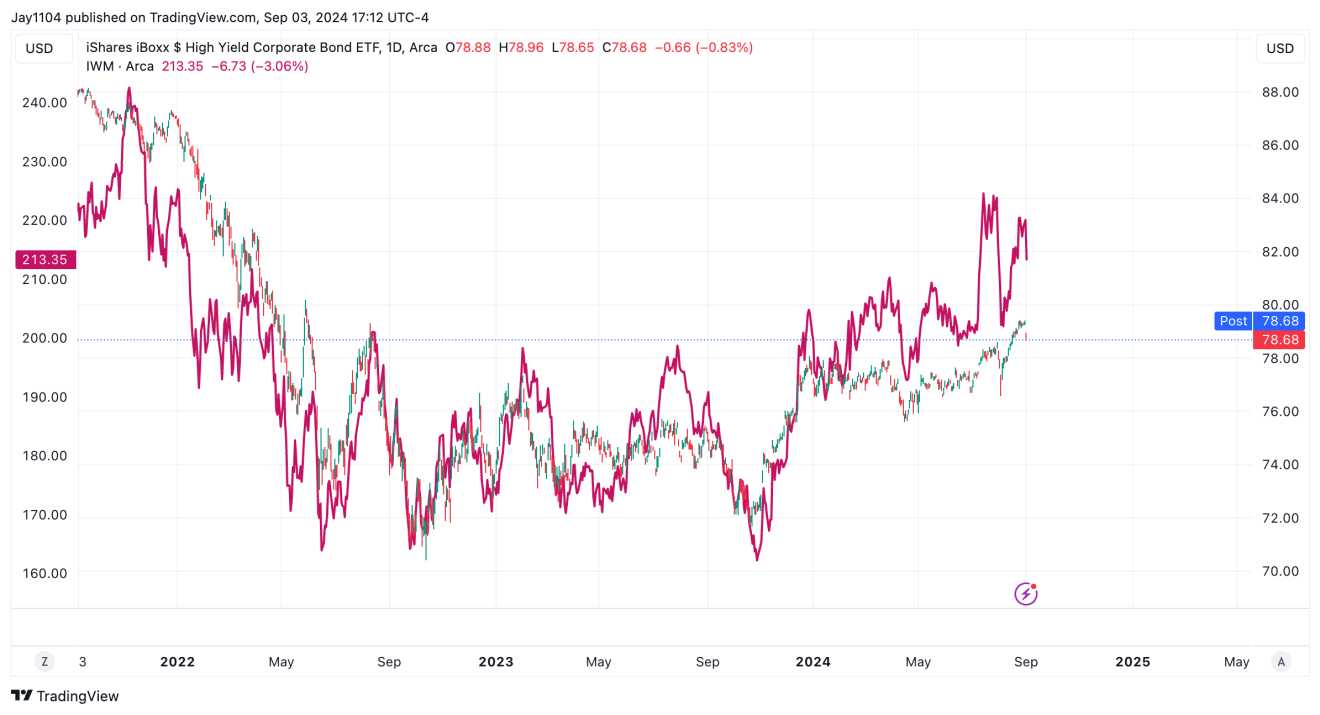
6. USD/CAD's Strong Correlation With S&P 500
The USD/CAD moved higher yesterday as the U.S. dollar strengthened. Today’s Bank of Canada meeting could significantly impact the direction of the USD/CAD. We pay attention to the USD/CAD because of its inverse relationship with the S&P 500.
If the USD/CAD is bottoming and moving higher, it could signal a short-term top in the S&P 500. Additionally, as I mentioned to members in a video on Friday, I was fortunate that despite the sharp drop in the USD/CAD, the S&P 500 merely churned sideways—a rare occurrence.
This could have been a significant clue that the rally had no real momentum, even as the Canadian dollar strengthened significantly against the US dollar.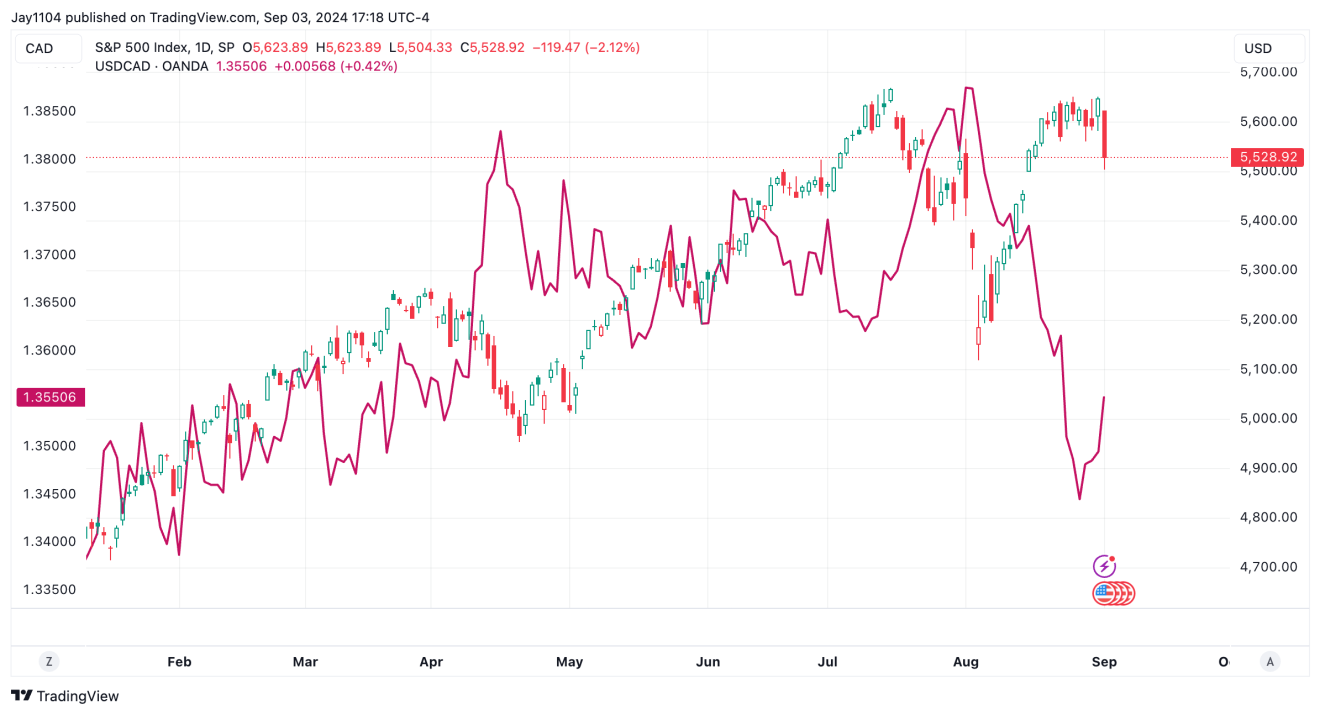
7. S&P 500 Futures Contract Volume
Sure enough, not only did the US dollar strengthen yesterday, but sellers also showed up, with S&P 500 futures contract volume surging from its August slumber.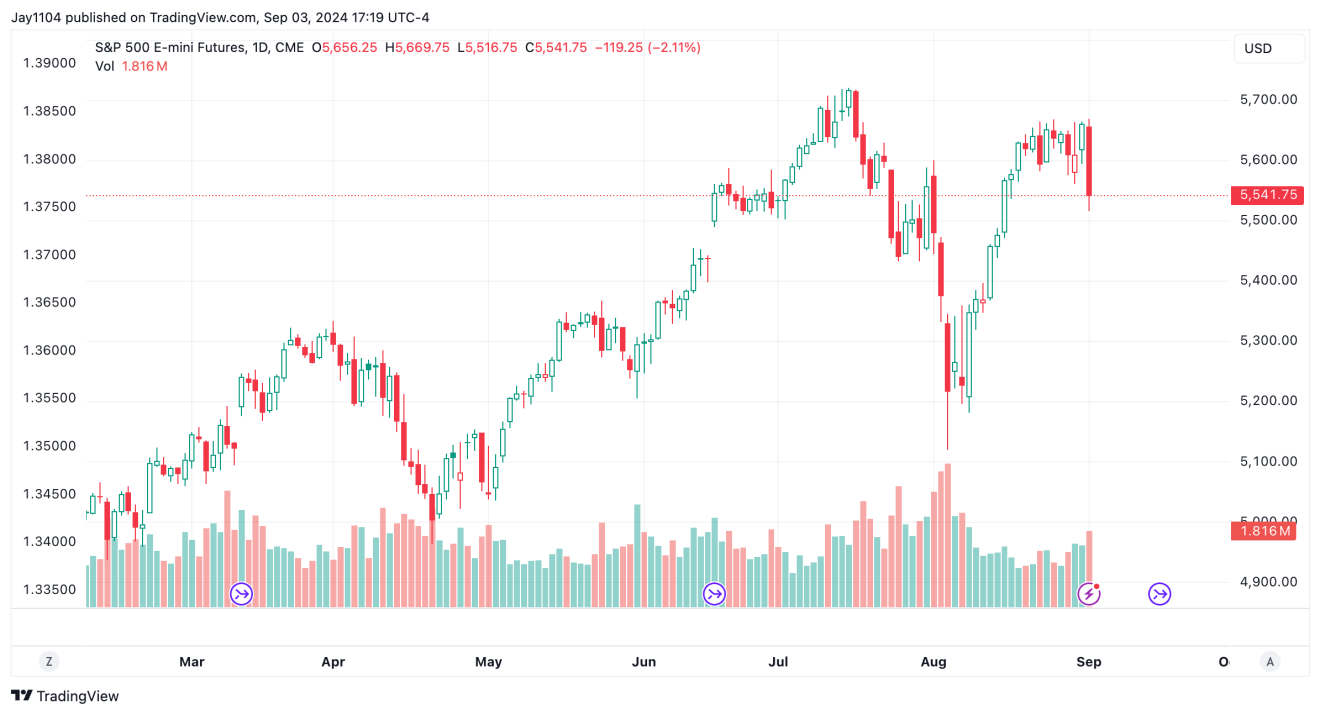
As I mentioned a couple of weeks ago, I believe the “higher for longer” trade is over. While it may show signs of resurfacing occasionally, I think it’s primarily finished.
We’ll see what today and the coming days bring, but things will only get more challenging incrementally from here.
